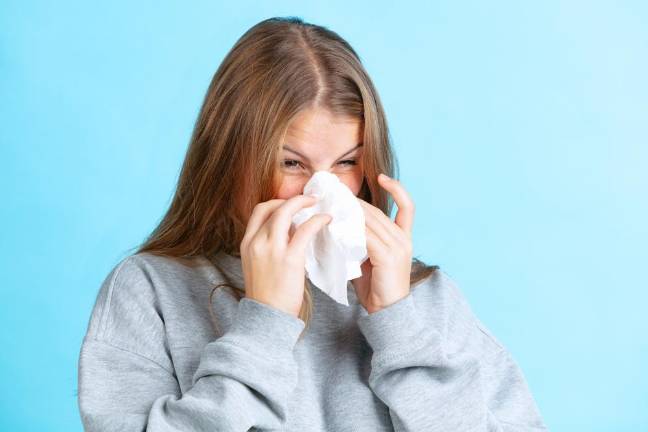How to Beat the Common Cold
Or at least manage its symptoms a little better

Achoo! Got a cold? You’re not alone.
Your eyes may be the window to your soul but your nose is a door to the rest of your body, and when the weather turns cold, the door is likely to stay open. September to March or April tend to be the classic common cold season; a recent study in The Journal of Allergy and Clinical Immunology suggests a reason why.
Your Grandparents probably taught you early on that you’re more likely to catch cold when the weather’s cold. They had a point. Every day in every way common cold and flu microorganisms that thrive in lower temperatures are floating in air around us just waiting to do damage. But let them try to swarm into your nose, and a group of researchers from places including Boston’s Northeastern University, Massachusetts Eye and Ear say that smart cells in your nasal tissue will release teensy little sacs of fluid to surround and drown them.
The problem is that respiratory viruses thrive at lower temperatures but your defenses don’t. Measuring the nasal temps of health volunteers when the outside temp was 74F and then dropped to 40F, the researchers found significantly lower immune response at lower temps, that is, when the year turned cold. Ditto for nasal cell samples in a lab experiment, validating the National Institutes of Health conclusion that cold and influenza viruses are better at spreading in chilly climates.
That explains why the approximately 200 common cold viruses spike in winter. Study co-author Mansoor Amiji, chairman of Northwestern’s Department of Pharmaceutical Sciences says it may also point a path to prevention, identifying a way to boost and trigger a local response to protect the rest of your body.
While you’re waiting, are there ways to reduce your risk?
Vitamin C May Help...A Little
Yes. And no. According to the Mayo Clinic, loading up on Vitamin C may not keep you from catching cold but might ever so slightly shorten how long the cold lingers. Adding some zinc and the herbal supplement echinacea to your daily regimen may (or may not) reduce a cold’s duration if you take them the minute you first sneeze and continue for a week. Exposure to sunlight affects our ability to use Vitamin D to build one anti-microbial molecule that knocks out flu viruses, so cloudy winter days may lessen its effect, but there’s not been a large random study either way.
So how to protect yourself? The most likely way you catch a cold is through meeting the virus-laden droplets that travel through the air when people around you sneeze or cough. These land on hands and surfaces such as doorknobs where they remain potent for as long as several hours, just sitting there waiting for you to pick them up, touch your nose, eyes or mouth and Bingo! That’s why you should wash your hands. Frequently. Clean the surfaces round you. Frequently.
Finally, feeling really sick? Call the doctor to be sure your cold hasn’t triggered a bacterial infection such as strep throat that requires the antibiotic that won’t lay a finger on the original virus. And be considerate of others. Stay home.
And relax. Cold and Flu season ends in about three months. At which point we can talk about a summer cold. Which is another animal entirely.